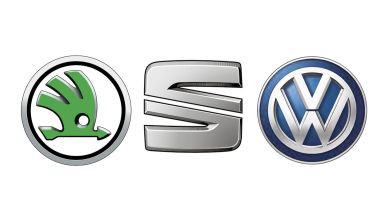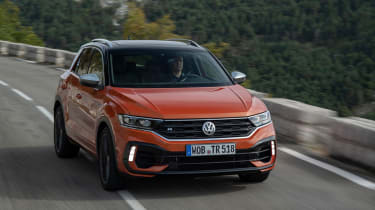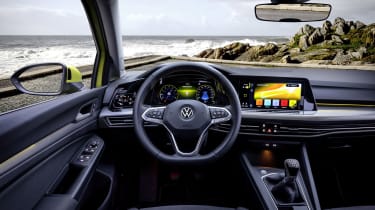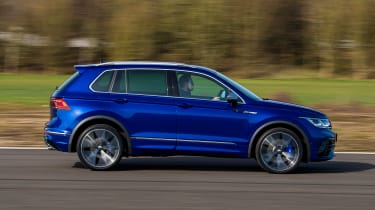SEAT, Skoda and Volkswagen: what’s the difference?
All three brands are owned by the same company, but each has a distinct identity. We explain what to expect from SEAT, Skoda and Volkswagen
Volkswagen
Slogan: Das Auto (the car)
Volkswagen was founded by the German Labour Front (essentially a trade union) in 1936 with the intention of getting more Germans on the road. Its first model was the famous Beetle, which was designed by Ferdinand Porsche and could originally be bought through a government-backed savings scheme. After the Second World War, a factory in the city of Wolfsburg was recommissioned with assistance from the British, and soon roughly 1,000 Beetles a month were being made there – despite a leaking roof causing production to stop when it rained.
Things have changed somewhat since then, and despite still being based in Wolfsburg, the Volkswagen Group is the world’s biggest car maker, and the 11th-largest company in the world by revenue – ahead of Apple, BP and the Chinese State Railway. The car maker Volkswagen is itself actually a subsidiary of the umbrella company the Volkswagen Group (Volkswagen AG, or Volkswagen Aktiengesellschaft – the German equivalent of a Public Limited Company). The dozen or so car, lorry and motorbike makers the group owns have been acquired partly thanks to the success of Volkswagen’s cars.
Model range:
Volkswagen has a significantly larger range than SEAT and Skoda, but like those brands the up! city car is the most affordable model offered. Next comes the Polo hatchback, followed by the all-electric ID.3 and then the hugely popular Volkswagen Golf.
Next is the larger ID.4 electric car, which kicks-off the VW SUV range. It’s a wide one – there’s the small T-Cross (related to the Skoda Kamiq and SEAT Arona), the T-Roc, the Tiguan and the Touareg. There’s the seven-seater Tiguan Allspace, too.
Next there’s the convertible T-Roc Cabriolet, the Passat saloon and Estate, the Arteon (a coupe version of the Passat) and the Areteon Shooting brake (the estate version of that). The Sharan is a people carrier, and there’s the Touran, too, plus the Caddy Life and the rest of the VW commercial vehicle range.
Trim levels:
VW’s trim range is too wide to list here, but there are the usual SE and SEL models in certain car ranges, plus the Golf goes from Life and Active up to Style and R-Line. Look out for the GTI models, which are fast and fun, along with the GTE versions, which are plug-in hybrids. There’s the R models, too, which have the most powerful engines.
Volkswagen’s carefully crafted brand means most buyers expect the following attributes in a new VW:
A classy yet classless image: the Volkswagen Golf is perhaps most emblematic of this, because you’re never quite sure who’s driving a Golf: it might be a member of the aristocracy heading to a clandestine assignation, or your accountant could just be dropping his cat off at the vet. Volkswagens tend to be seen as fairly conservative cars, and many like the understated sense of quality they embody.
Strong build quality: Volkswagen ran a famous series of advertisements throughout the 1980s and ’90s, emphasising the brand’s build quality and reliability and, to an extent, it’s an image that’s stuck. Volkswagens tend to feature clear dashboard dials, logical control layouts, good-quality plastics and a pleasing sense of solidity and robustness.
Although Volkswagens are usually more expensive than their SEAT and Skoda equivalents, they do tend to have slightly nicer interiors and feature plastics that are softer to the touch.
Famous performance models: it might seem at odds with the classy image, but Volkswagen arguably invented the hot hatchback in 1975, when its engineers designed the Golf GTI in their spare time. Since then, the GTI has become something of an icon and other hot hatchbacks – fairly or unfairly – tend to be judged against it. Volkswagen also makes the even faster Golf R, and the hybrid Golf GTE. The Polo, meanwhile, is offered in GTI guise, and there’s a T-Roc R and Touareg R.
Anything else to know?
Despite being seen as the most prestigious of the three car makers covered here, Volkswagen did relatively badly in our 2021 Driver Power customer satisfaction survey, coming 17th out of 30 manufacturers.
Volkswagen’s warranty is the same as SEAT’s and Skoda’s, which means you get three years’ worth of cover with no mileage cap for the first two years and a 60,000-mile limit for year three. In truth, this guarantee is beginning to look a little stingy, because Mercedes and BMW place no mileage cap on any of the three years of their warranties, while other manufacturers offer as many as seven years’ cover. At least VW – like SEAT and Skoda – will sell you an extended warranty for extra peace of mind.
Cheapest route into Volkswagen ownership: Volkswagen still offers its up! city car, which is by far the cheapest model in the range in 1.0-litre petrol form.
Most exclusive model: The VW Touareg is a huge, luxurious and expensive SUV with loads of cutting-edge equipment, although the lack of a seven-seat option means it’s slightly hamstrung compared to rivals such as the Volvo XC90.
The one you’ll probably buy: it’s got to be a Golf, really. Volkswagen’s hatchback is often imitated but, to some eyes, never bettered. The million-plus examples Volkswagen sells each year (about 7% of which end up with UK buyers) means you’ll be in good company.
You’ve reached the end of our analysis of SEAT, Skoda and Volkswagen, but if you’d like to go back, click here to be taken the first page on SEAT, or here to go back to page two’s Skoda rundown.
Most Popular
Tips & advice

Car dashboard warning lights: what does each symbol mean?

Electric car charging stations: public networks, charger types, apps and maps










